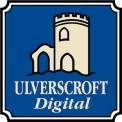
The History of Computing
eAudiobookThe story of computing begins not with electricity or screens but with simple tools and the human need to solve problems. Long before the modern computer ancient civilizations were already creating devices to aid in counting measuring and performing basic arithmetic. These early innovations laid the groundwork for centuries of progress in computing.
One of the most enduring tools from this era is the abacus. Believed to have originated in Mesopotamia over 4000 years ago the abacus evolved in various cultures including Chinese Roman and Japanese societies. It was a portable efficient device that allowed users to perform addition subtraction multiplication and division by sliding beads along rods or grooves. Although simple in design the abacus was powerful for its time and is still used in some regions for teaching arithmetic and mental calculation skills.
In addition to the abacus ancient number systems were critical to the development of computation. The Babylonians used a base-60 numeral system which influenced the way we measure time and angles today. The Egyptians employed a system based on units of ten using hieroglyphs to represent values. Meanwhile the Romans had a cumbersome numeral system that made complex calculations challenging. It wasn't until the adoption of the Hindu-Arabic numeral system with its concept of zero and place value that true advances in mathematical computation became possible.
- Published by Cammy Fetchens LLC
- Fiction/Non-FictionFiction
- Genre General Fiction
- Target Audience Adult
- Released 27th March 2025
- Duration 01 Hrs. 43 Mins.
- ISBN 9798318320057
















